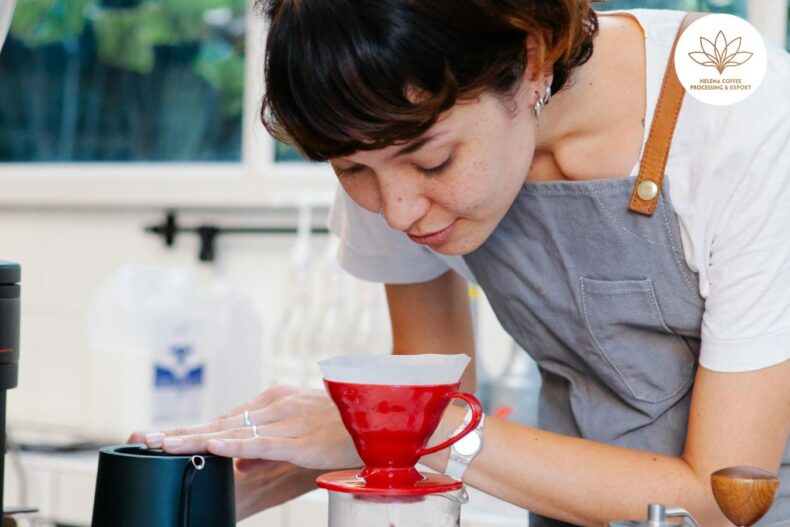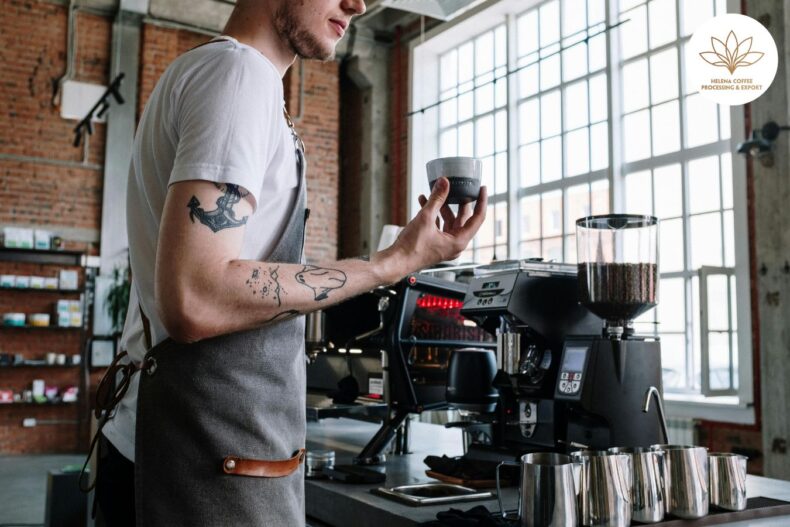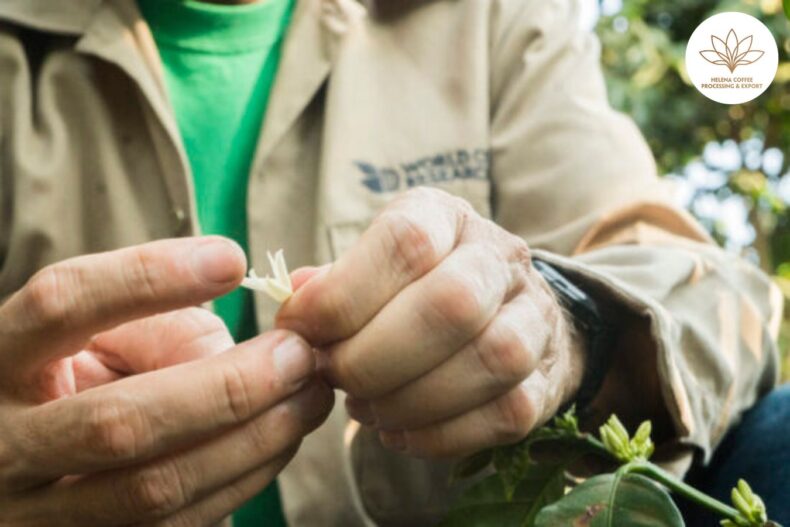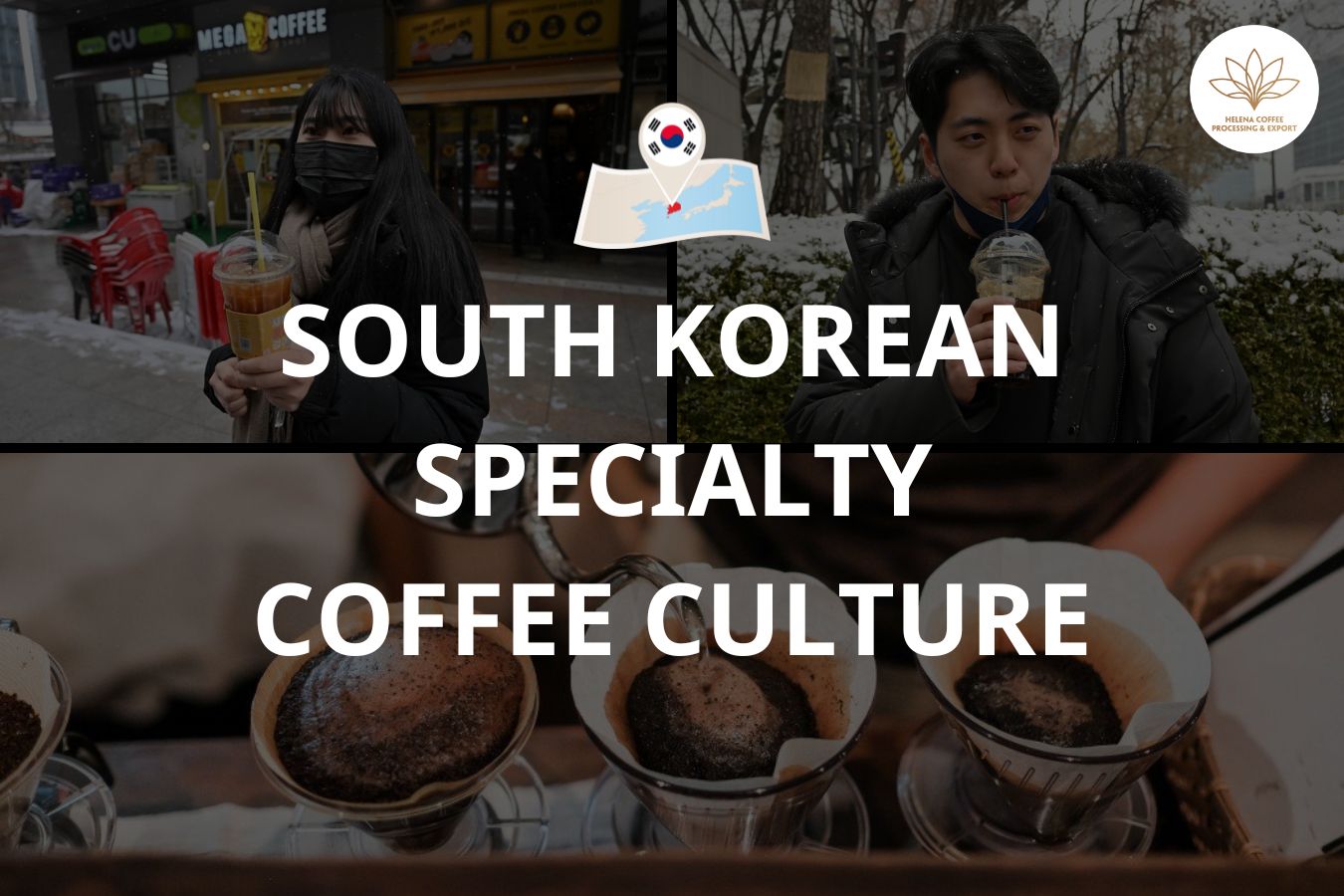
South Korean Specialty Coffee Culture frequently ranks among the globe’s most progressive coffee markets, and its specialty coffee sector, while young, is advancing at an impressive clip. The decision by the Specialty Coffee Association to hold the inaugural World of Coffee Asia event in Busan in May 2024 underscores the nation’s growing influence in the coffee industry. This milestone prompts a deeper examination of the transformation within South Korea’s coffee culture.
Charles Costello, the visionary behind Caffeine Compass and author of the pioneering English language Korea Specialty Coffee Guide, delves into the nuances of this evolution in his latest work. His analysis sheds light on the current state of South Korea’s specialty coffee landscape and provides insights into what the future might hold. His perspective is particularly relevant as South Korea continues to carve out a significant niche in the global coffee community, driven by a relentless pursuit of innovation and excellence.
The Emergence of Coffee Culture in South Korea: A Historical Overview
South Korea’s coffee culture may seem nascent when compared to other nations, but its roots extend further into history than commonly acknowledged. The real surge in coffee’s popularity emerged in the latter half of the 20th century, though its introduction dates to an earlier era.
As detailed in the Specialty Coffee Association’s “Love at First Sip: A History of Coffee in Korea,” the nation’s self-imposed seclusion policy, which lasted until the 1880s, limited coffee’s reach. During this time, foreign naval vessels occasionally docked at South Korean ports, and local dignitaries, usually invited aboard for libations, were introduced to coffee alongside more customary alcoholic offerings.
For a significant period, coffee was a luxury, savored predominantly by the upper echelons of society such as the monarchy, government dignitaries, and affluent business figures.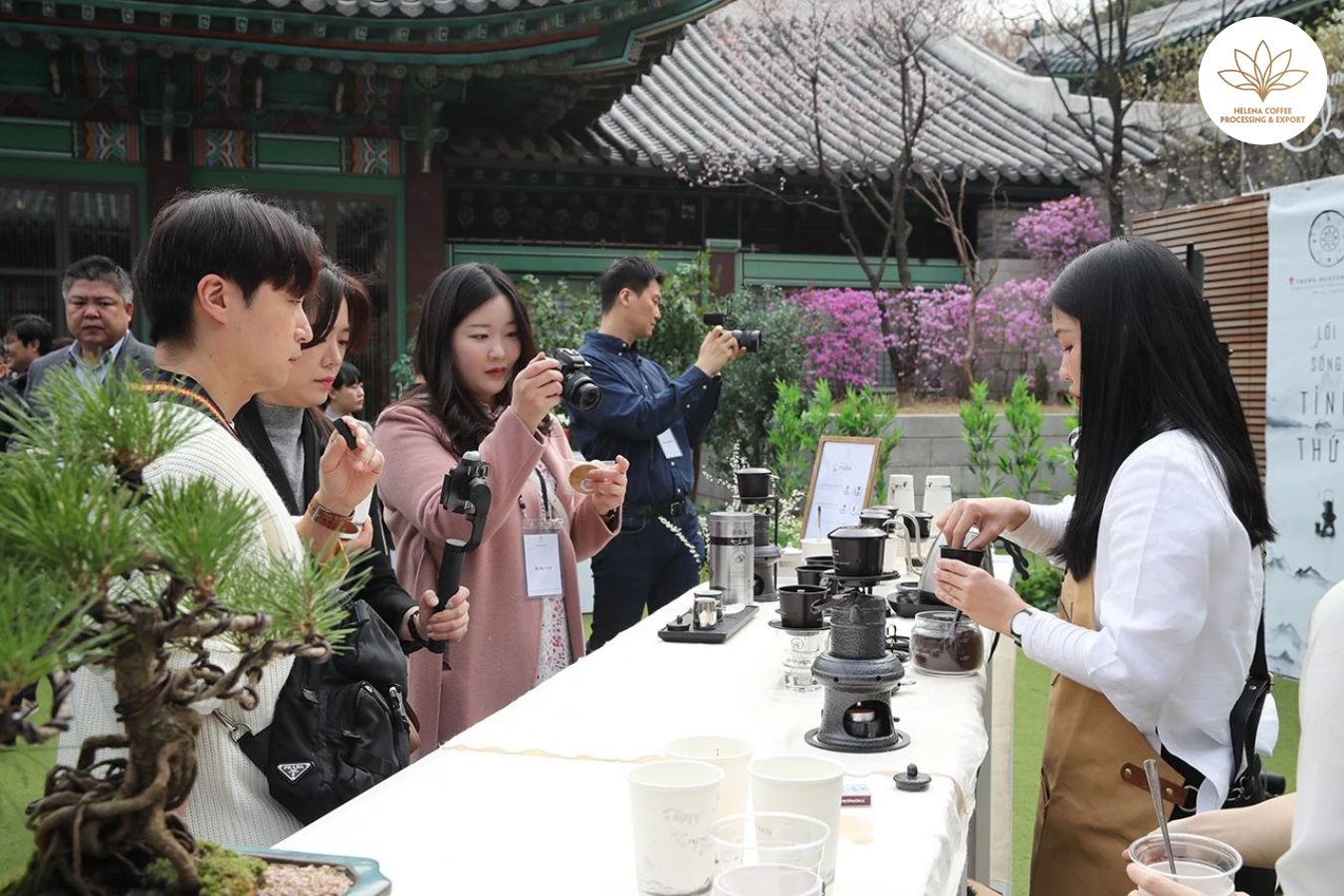
The landscape began to shift with the advent of dabangs, or tearooms, in the early to mid-20th century. While tea reigned supreme, these establishments also served coffee among other beverages. Initially, these social hubs were exclusive to the affluent in Seoul, the capital city, reflecting the high cost of coffee which was prohibitive for the average citizen.
The 1960s marked a turning point as dabangs grew more accessible, transforming into vital social venues for a broader swathe of the populace.
The Instant Coffee Revolution and Café Culture Expansion
Simultaneously, the popularity of instant coffee was on the rise. A notable milestone occurred in the late 1970s when Dongsuh Foods, in partnership with Maxwell House, released South Korea’s first three-in-one instant coffee, propelling the beverage into domestic ubiquity.
By the 1980s, South Korea had become the world’s preeminent consumer of instant coffee, signaling a noteworthy shift in consumption habits. This period also saw the burgeoning of home coffee-drinking practices.
Parallel to the instant coffee wave, the 1980s witnessed the proliferation of coffee shops, some of which took the pioneering step of roasting their own beans. This evolution coincided with South Korea’s economic surge, providing more citizens with disposable income and further catalyzing the growth of the coffee sector.
Today, while instant coffee maintains its popularity, the sophisticated café culture has firmly taken root, reflecting South Koreans’ deepening affinity for coffee and an eagerness to partake in the global artisanal coffee movement.
The Rise of South Korean Specialty Coffee
The introduction of the first Starbucks in South Korea in 1999 marked a new era for coffee, but the specialty coffee scene truly began to flourish with the emergence of local specialty cafes.
Three pioneering coffee shops are widely credited with sparking the specialty coffee movement in South Korea:
- Terarosa: established in 2002
- Namusairo: also inaugurated in 2002
- Coffee Libre: which opened its doors in 2009
Although specialty coffee culture saw a significant upswing in 2015, these trailblazing brands laid the groundwork for the market. They introduced groundbreaking concepts like the “seed-to-cup” philosophy and the art of single-origin pour-overs.
These establishments not only pioneered new coffee experiences but also inspired a generation of baristas to seek formal training and shine in competitions, such as the World Barista Championship, solidifying South Korea’s position in the international specialty coffee arena.
South Korea’s Ultra-Specialty Coffee Segment
Mirroring trends in other East Asian nations, South Korea has seen its ultra-specialty coffee segment mature over time.
In 2008, Lee Yun-seon of Terarosa became South Korea’s first Cup of Excellence judge, bringing elite and rare auction coffees to the nation’s roasters.
That same year, Seo Pil-hoon of Café Bohemian achieved the distinction of being the first Korean Q grader. Under Yuko Itoi’s mentorship—a vanguard in Japan’s specialty coffee scene—Seo Pil-hoon inaugurated Coffee Libre in 2009 and became the second Cup of Excellence judge in the country.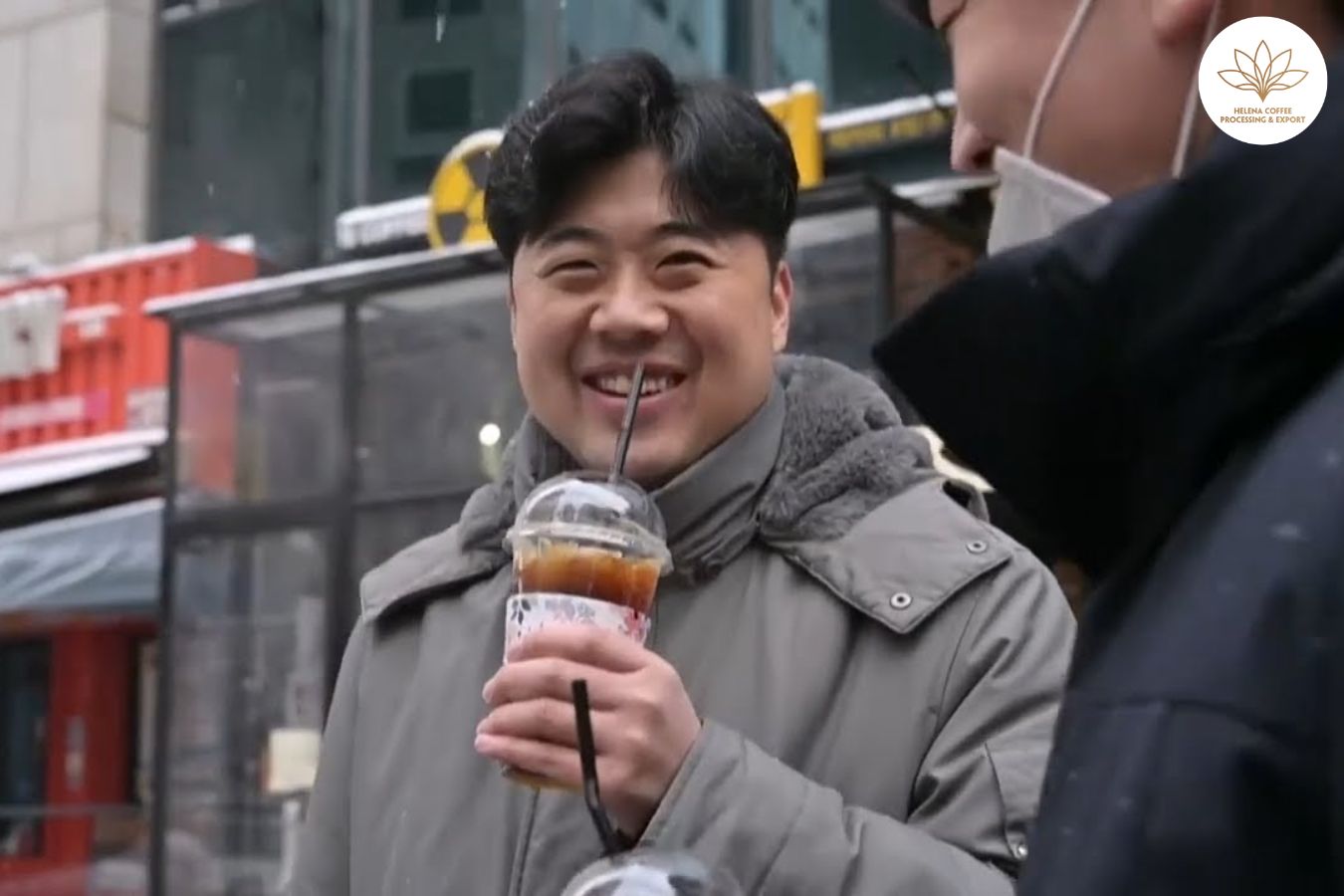
Following these developments, establishments like El Café Coffee Roasters and Momos Coffee were instrumental in cementing the foundation of the specialty coffee culture in South Korea.
Momos Coffee, started by Q grader Lee Hyun-ki in 2007, has become synonymous with excellence both domestically and internationally, propelled in part by the 2019 World Barista Champion, Jeon Joo-yeon. This success has inspired a wave of new roasters and coffee shops, such as Blackup Coffee, In Earth Coffee, Werk Roasters, and Hytte Roastery.
The period between 2007 and 2013 was marked by a staggering 300% growth in the South Korean coffee market, vaulting it to the status of the eighth-largest coffee market globally.
South Korea’s footprint in global coffee championships also expanded. In 2013, Jeong In-seong, using a Panama Gesha from Namusairo in Seoul, achieved a record second-place score at the World Brewers Cup in Sydney, Australia, showcasing the exceptional caliber of South Korean specialty coffee on the world stage.
Evolving South Korean Specialty Coffee
The South Korean coffee market has soared to new heights as of 2023, with an astounding tally of over 75,000 coffee establishments nationwide. This equates to roughly one coffee shop for every 700 people, a testament to the country’s deep-seated love for the brew.
In recognition of South Korea’s dynamic and innovative coffee scene, the nation is set to welcome the inaugural World of Coffee Asia event in May 2024. This prestigious gathering will include the 2024 World Barista Championship, further cementing South Korea’s reputation in the coffee world.
While Seoul’s coffee culture is vibrant, the selection of South Korea as the event’s host, particularly the city of Busan, underscores the high-quality coffee shops and roasters that thrive in the country’s second-largest city.
Among the standout South Korean roasters is Fritz Coffee Company, established in 2014 by Kim Byeong-ki, formerly of Coffee Libre, alongside a team of expert baristas, roasters, and bakers. Fritz has captivated the social media landscape with its nostalgic aesthetics, striking branding, and distinctive seal logo.
South Korean roasters, including Felt, Coffee Montage, and 180 Coffee Roasters, join Fritz in achieving global recognition, with their coffee being served in establishments around the world.
South Korea’s Global Coffee Influence
South Korean culture has seen its global popularity surge across various domains, from entertainment to fashion, music, and notably, specialty coffee.
International coffee icons, such as Blue Bottle, made a significant splash in Seoul upon their arrival in May 2019, influencing the local coffee industry.
South Korean baristas are venturing abroad, accruing valuable experience and knowledge, which they bring back to enrich the domestic scene. Professionals like Lee Jong-hoon of Coffee Graffiti, Kim Sa-hong of Coffee Temple, and World Barista Champion Jeon Joo-yeon have been pivotal in enhancing South Korea’s coffee market prestige.
The ongoing growth in enthusiasm for South Korean specialty coffee is evident both at home and abroad.
In line with the growing global curiosity, the Korea Specialty Coffee Guide has been published in English, detailing 82 exemplary coffee shops throughout Seoul, Busan, and Jeju, inviting coffee aficionados worldwide to explore South Korea’s rich coffee landscape.
FAQS:
